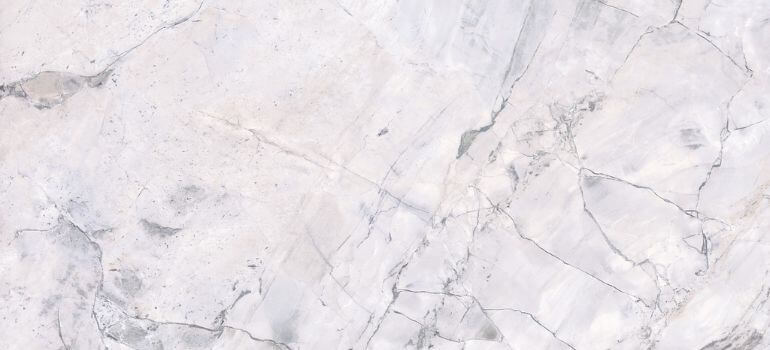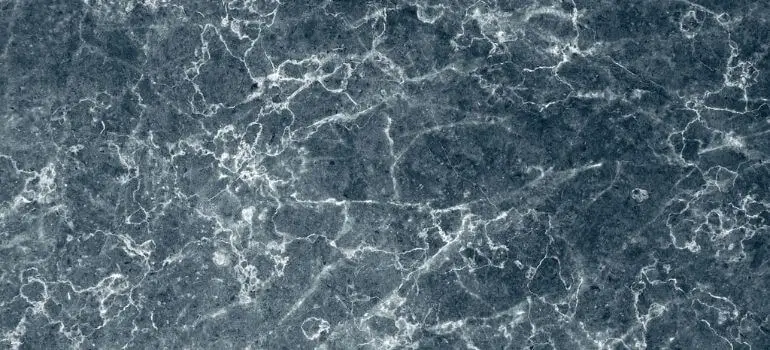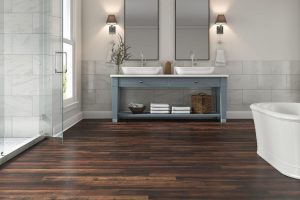Introduction
In the realm of kitchen and bathroom design, the choice of countertop material holds significant importance. Caesarstone and marble stand out as two compelling options, each with its unique characteristics. This article delves into the comparison between Caesarstone and marble, guiding you in making an informed decision that suits both your aesthetic preferences and practical needs.
Understanding Caesarstone
Composition and Characteristics
Caesarstone, a man-made quartz surface, combines crushed quartz with polymer resins to create a durable and versatile material. Its composition results in a non-porous surface, making it resistant to stains and bacteria.
Pros and Cons
Pros:
- Durability
- Low maintenance
- Wide range of colors and patterns
Cons:
- Limited heat resistance
- Not entirely scratch-proof
Exploring the Elegance of Marble
Formation and Features
Marble, a natural stone, forms through the metamorphism of limestone. Its distinctive veining patterns and unique color variations contribute to its aesthetic appeal.
Advantages and Drawbacks
Pros:
- Timeless beauty
- High heat resistance
- Adds value to the property
Cons:
- Porous nature requires sealing
- Susceptible to scratches and stains
Aesthetics: Comparing the Look and Feel
Caesarstone’s Modern Appeal
Caesarstone, with its contemporary designs and consistent patterns, complements modern and minimalist aesthetics. The material’s sleek finish appeals to those seeking a polished and refined look.
Marble’s Timeless Beauty
Marble, on the other hand, boasts a timeless elegance that transcends trends. The natural variations in color and veining create a sense of sophistication, making it a preferred choice for classic and luxurious interiors.
Durability: A Battle of Strength
Caesarstone’s Toughness

Caesarstone emerges as a formidable contender in the durability arena. Crafted with a meticulous blend of crushed quartz and polymer resins, it boasts a robust composition that stands up well against daily wear and tear. This engineered resilience makes Caesarstone countertops highly resistant to scratches, cracks, and chips. Families bustling with activity can appreciate the sturdiness of Caesarstone, confident that their countertop can endure the rigors of a busy lifestyle.
However, it’s essential to exercise caution in one specific aspect. While Caesarstone is a tough customer overall, it does have a limitation when it comes to heat resistance. Placing hot pans directly on the surface may lead to damage, reminding homeowners to implement preventive measures to maintain the pristine condition of their Caesarstone countertops.
Marble’s Susceptibility
Marble, a natural stone born from the depths of the Earth’s transformational processes, carries its own set of strengths and vulnerabilities in the durability realm. Renowned for its innate strength, marble stands resilient against the pressures of everyday use. Its ability to withstand high temperatures without compromising its structural integrity makes it a preferred choice for baking enthusiasts and culinary aficionados.
However, like any natural material, marble exhibits a certain level of susceptibility. It can fall victim to scratches and abrasions, particularly from sharp objects. Additionally, its porous nature requires regular sealing to fend off stains and prevent long-term damage. This characteristic demands a level of conscientious care from homeowners, urging them to be mindful of the substances that come into contact with their marble countertops.
In the duel of durability, both Caesarstone and marble present their distinct strengths and weaknesses. Caesarstone excels in toughness, offering a reliable shield against common threats. Marble, while naturally robust, requires a bit more TLC to preserve its pristine beauty over time. Homeowners must weigh these factors against their lifestyle and preferences to make an informed choice that aligns with their expectations for countertop longevity.
Maintenance: Ease vs. Sensitivity
Caesarstone’s Low Maintenance
Caesarstone requires minimal upkeep, with routine cleaning sufficient to keep it in top condition. Its non-porous surface prevents the absorption of liquids, simplifying maintenance.
Marble’s Delicate Care
Marble demands more delicate care, including regular sealing and cautious handling of acidic substances. Stains should be addressed promptly to prevent long-term damage.
Cost Considerations
Initial Investment
Caesarstone generally has a lower initial cost, making it a budget-friendly choice for homeowners. The range of prices allows for flexibility based on individual preferences.
Long-Term Expenses
Marble’s susceptibility to damage may lead to higher long-term expenses, considering the need for sealing and potential repairs. However, its timeless appeal can enhance the property’s resale value.
Environmental Impact
Caesarstone’s Sustainability
As an engineered stone, Caesarstone often incorporates recycled materials, contributing to a more sustainable choice. The manufacturing process focuses on minimizing environmental impact.
Marble’s Natural Origins
Marble, being a natural stone, is environmentally friendly in its extraction process. However, the transportation of marble slabs can contribute to a higher carbon footprint.
Customization Options
Caesarstone’s Versatility
Caesarstone offers a wide range of colors and patterns, providing homeowners with extensive customization options. This versatility allows for seamless integration into various design schemes.
Marble’s Limited Options
While marble’s natural beauty is unparalleled, the range of colors and patterns is more limited compared to Caesarstone. Homeowners seeking specific shades may find fewer options.
Resale Value: Investing in Your Home
Caesarstone’s Contemporary Appeal
Caesarstone’s modern appeal can enhance the resale value of a home, especially in markets where contemporary design is in high demand. Its durability adds to the overall property value.
Marble’s Classic Allure
Marble’s timeless elegance can also contribute positively to resale value, appealing to buyers who appreciate classic and luxurious features in a home.
Making the Decision: Factors to Consider
When choosing between Caesarstone and marble, consider factors such as your lifestyle, aesthetic preferences, and maintenance capabilities. Both materials offer unique benefits, and the decision ultimately rests on individual priorities.
Real-Life Experiences: Homeowner Perspectives
To provide a more comprehensive understanding, we interviewed homeowners who have chosen Caesarstone or marble for their countertops. Their experiences shed light on practical aspects and long-term satisfaction with their choices.
Professional Insights: Expert Recommendations
Seeking professional advice is crucial when making such a significant decision. Industry experts share their insights on the performance, durability, and design considerations of Caesarstone and marble.
Where to Purchase: Finding Your Ideal Supplier
Explore reputable suppliers and fabricators that offer a wide selection of Caesarstone and marble. Consider factors such as customer reviews, warranties, and installation services to make an informed choice.
Conclusion
In the debate between Caesarstone and marble, there is no one-size-fits-all answer. Each material brings its unique attributes to the table, catering to different preferences and lifestyles. Whether you opt for Caesarstone’s modern durability or marble’s timeless beauty, your choice should align with your personal style and practical requirements.
Frequently Asked Questions
While Caesarstone is engineered for durability and resistance to scratches, marble’s natural strength can also withstand the test of time. The choice depends on your specific needs and lifestyle.
Caesarstone generally has a lower initial cost, making it a more budget-friendly option for homeowners. However, long-term expenses should also be considered.
Yes, marble requires more maintenance, including regular sealing and careful handling of acidic substances. Caesarstone, with its non-porous surface, is easier to maintain.
Yes, marble can be repaired if it sustains damage. However, the extent of the damage will determine the complexity and cost of the repairs.
Caesarstone, being an engineered stone, often incorporates recycled materials, making it a more sustainable choice. Marble’s extraction process is natural but may contribute to a higher carbon footprint during transportation.



